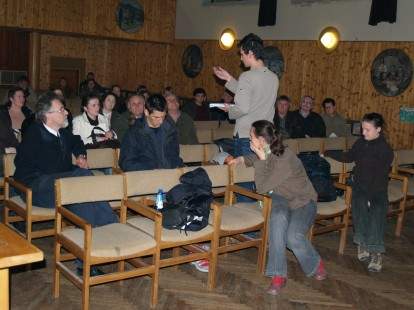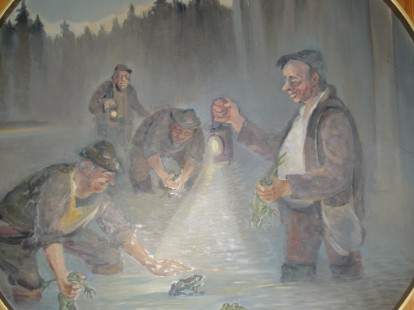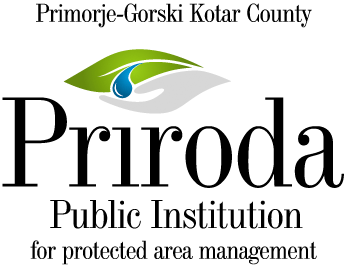
ROUNDTABLE ON FROG CONSERVATION IN GORSKI KOTAR A roundtable on the conservation of the European common brown frog in Gorski Kotar was held in the Community Centre of Lokve on 13 March 2008. The roundtable was well-attended (more than 40 visitors) and its “timing” coincided closely with the beginning of the breeding
season of the brown frog, a time that attracts growing numbers of frog hunters to various parts of Gorski Kotar and, in particular, to the environs of Lokve. Year after year, frog hunting traditionally takes place during the breeding season, when frogs gather near water to breed, making them easy
to find and catch. Frog hunting, however, prevents the frogs from laying eggs and so disrupts their normal development cycle. This is why frog numbers are in great decline, a fact confirmed by the people of Lokve present at the roundtable. Participating in the meeting with expositions were the representatives of the Public Institution “Priroda”; Mr. Boris Crnković, a native of Lokve, who has been hunting frogs for 45 years and is today an strong advocate of frog conservation (the meeting was, in fact,
organised at his initiative!); Mrs. Petra Kulaš, head of the Frog Museum of Lokve; Misses Dragica Šalamon and Marija Kuljerić, representatives of the Croatian Herpetological Association Hyla; Ms Ivanka Jelenčić, M.Sc., Senior Inspector for nature protection in the County of Primorje and Gorski
Kotar; and Mr. Albert Marinković, Ph.D., of the Veterinary Faculty of Zagreb. The roundtable provided many interesting facts on the life of frogs, their role in nature and in the food chain, and why they are useful. It also focused on issues such as frogs as a threatened species, traditional frog
hunting and the legal legislation that protects frogs. Also discussed was the use of frog meat as a food product, and the risk presented by a dangerous parasite – the fluke Alaria – that lives in frogs and can infect humans. The pupils of the Lokve Elementary School provided a delightful introduction to the presentations with a recital of poems about frogs and a “frog-jumping contest” using origami paper frogs. The conclusion of the meeting was that increased efforts and activities are required
to prevent the brown frog from disappearing in Gorski Kotar. This involves protecting breeding sites, preventing frogs from being overhunted, introducing frog management, and checking for and providing protection from ecto and endo parasites that attack amphibians. 
|




